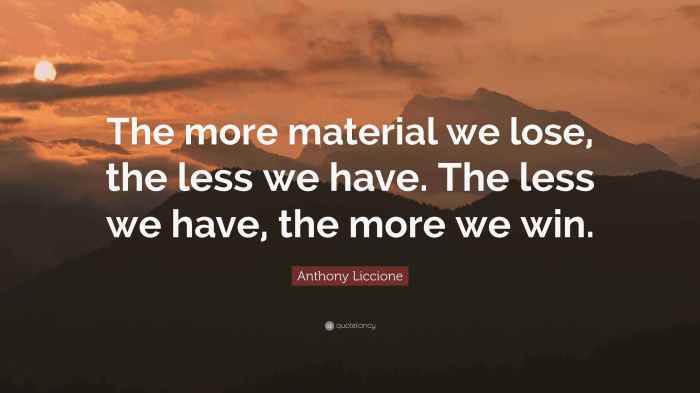Research reveals night owls are more intelligent than people who get early, but is this really true? This exploration delves into the fascinating world of sleep patterns and their potential correlation with cognitive abilities. We’ll examine the common societal perceptions, scientific research, and potential confounding factors to uncover the truth behind this intriguing claim.
This investigation looks at the differences between night owls and early birds in terms of sleep schedules, energy levels, and potential personality traits. We will also explore the relationship between sleep patterns and cognitive abilities, like memory, problem-solving, and attention span. Further, we’ll look at potential confounding factors, research methodologies, and alternative explanations to form a comprehensive understanding of the subject.
Introduction to the Concept of Night Owls and Early Birds
The world is populated by individuals who thrive at different times of the day. Some are energized by the early morning light, while others find their peak performance in the quiet hours of the night. These differing chronotypes, often referred to as “night owls” and “early birds,” have long been observed and, in some cases, stereotyped, often based on perceived productivity and intelligence.
Understanding their sleep patterns and the associated societal perceptions can offer valuable insights into human behavior and cognitive function.The common societal perception often casts early birds as more productive and intelligent, while night owls might be labeled as less organized or even lazy. However, these are often oversimplifications, and recent scientific research is challenging these assumptions. A deeper understanding of the differences between these two groups, beyond the simple label, is crucial for recognizing the diverse ways in which human brains operate.
Defining Night Owls and Early Birds
Night owls are individuals whose sleep-wake cycle is naturally later than the average person. They tend to stay up later and sleep in later. Early birds, conversely, have a sleep-wake cycle that aligns more closely with the typical morning hours. These differences in sleep patterns are largely due to variations in the body’s natural circadian rhythm.
Societal Perceptions of Night Owls and Early Birds
Historically, and even today, societies often associate specific personality traits with these sleep patterns. Early birds are frequently perceived as organized, punctual, and efficient, while night owls might be viewed as creative, innovative, or even rebellious. These perceptions are often generalizations and don’t reflect the wide range of individual experiences and abilities. The notion of early birds as more intelligent, though common, lacks scientific backing.
Scientific Research on Sleep and Cognitive Abilities
A growing body of research explores the relationship between sleep patterns and cognitive performance. Studies have investigated the correlation between chronotype and various cognitive abilities, such as attention, memory, and problem-solving. While some studies show potential links between certain sleep patterns and specific cognitive strengths, no definitive conclusions have been drawn regarding the superiority of one chronotype over another in terms of overall intelligence.
For example, some research suggests that night owls may perform better on tasks requiring creativity or flexibility, while early birds might excel in tasks demanding precision and focus.
Comparing Night Owls and Early Birds
| Characteristic | Night Owl | Early Bird |
|---|---|---|
| Sleep Schedule | Tend to stay up late and sleep in | Tend to go to bed early and wake up early |
| Energy Levels Throughout the Day | Often experience a surge in energy later in the day and early evening | Often have higher energy levels in the morning and early part of the day |
| Potential Personality Traits | May be more adaptable, creative, and flexible | May be more organized, punctual, and efficient |
| Cognitive Strengths | May excel at tasks requiring creativity, flexibility, or late-night work | May excel at tasks requiring focus, precision, and early-morning work |
The table above summarizes the key differences between night owls and early birds, highlighting their varying sleep schedules, energy patterns, and potential personality traits. It is important to note that these are generalizations and do not apply to every individual.
Examining the Correlation Between Sleep Patterns and Cognitive Abilities
The human brain is a complex organ, and its function is deeply intertwined with sleep. Recent research suggests a strong correlation between sleep patterns and cognitive abilities, influencing how we learn, remember, solve problems, and make decisions. This exploration delves into the intricacies of this relationship, examining how different sleep schedules might impact cognitive performance.The quality and quantity of sleep directly impact various cognitive functions.
From memory consolidation to attention span, sleep plays a vital role in optimal brain function. Understanding this relationship is crucial for optimizing learning, productivity, and overall well-being.
Cognitive Abilities and Their Components
Cognitive abilities encompass a broad spectrum of mental processes. Memory, encompassing both short-term and long-term storage, is essential for learning and recalling information. Problem-solving involves using existing knowledge to overcome challenges and devise solutions. Attention span refers to the ability to focus on a specific task or stimulus over time, while decision-making involves evaluating options and selecting the best course of action.
These functions work in concert to support complex cognitive activities.
Impact of Sleep Deprivation on Cognitive Functions
Sleep deprivation significantly impairs various cognitive functions. Reduced sleep can negatively affect memory consolidation, making it harder to retain new information. Problem-solving abilities are often compromised, leading to difficulty in finding solutions to complex tasks. Attention span diminishes, impacting focus and concentration. This, in turn, can affect decision-making, potentially leading to impulsive choices or errors in judgment.
These impacts are especially notable in situations demanding sustained cognitive effort.
Neurobiological Mechanisms Influencing the Relationship
The neurobiological mechanisms underlying the sleep-cognition link are still under investigation. However, emerging research suggests that sleep plays a critical role in the consolidation of memories, the strengthening of neural connections, and the restoration of cognitive resources. Specific brain regions, such as the hippocampus and prefrontal cortex, are believed to be particularly involved in these processes. These regions are known to be highly active during sleep, and disruptions in sleep can negatively impact their function.
Recent research suggests night owls might just be smarter than early birds. Want to unlock the secrets to supercharging your Google searches? Check out these 10 smart ways use google that you have know to find information faster and more efficiently. 10 smart ways use google that you have know. While the reasons behind this are still being explored, maybe those late-night study sessions are paying off after all!
Understanding these mechanisms could lead to strategies for optimizing cognitive performance through better sleep hygiene.
Cognitive Tests and Assessments
Evaluating cognitive performance involves various standardized tests and assessments. These tools provide quantifiable measures of different cognitive functions.
| Cognitive Function | Example Test | Description |
|---|---|---|
| Memory | Wechsler Memory Scale | Assesses different aspects of memory, including immediate recall, delayed recall, and recognition. |
| Problem-solving | Raven’s Progressive Matrices | Measures abstract reasoning and problem-solving abilities through non-verbal reasoning tasks. |
| Attention Span | Sustained Attention Task (e.g., the continuous performance test) | Assesses the ability to maintain focus over extended periods. |
| Decision-making | Iowa Gambling Task | Evaluates decision-making under risk and reward contexts, often used in the study of impulsivity. |
Possible Correlations Between Sleep Schedules and Cognitive Strengths/Weaknesses
Different sleep schedules might be associated with variations in cognitive strengths and weaknesses.
| Sleep Schedule | Potential Cognitive Strengths | Potential Cognitive Weaknesses |
|---|---|---|
| Early risers | Strong attention span, enhanced decision-making under stable conditions | Potential difficulties with creative problem-solving, adapting to dynamic situations |
| Night owls | Enhanced creativity, problem-solving under pressure, adaptability | Potential challenges with maintaining sustained attention, difficulties with early-morning tasks |
Analyzing Potential Factors Influencing the Perceived Link: Research Reveals Night Owls Are More Intelligent Than People Who Get Early

The observed correlation between sleep patterns and perceived intelligence is intriguing, but it’s crucial to acknowledge potential confounding factors that could be influencing the results. A simplistic interpretation of this relationship might overlook the complex interplay of various elements that shape cognitive abilities. It’s essential to explore the nuances and identify these hidden influences to gain a more accurate understanding of the true relationship between sleep and cognitive function.While some research suggests a connection between night owl tendencies and higher cognitive performance, it’s vital to approach this finding with caution.
A multitude of factors can mask or amplify the impact of sleep patterns on perceived intelligence. Understanding these factors is paramount to avoid misinterpretations and build a more robust understanding of the underlying mechanisms.
Potential Confounding Factors
The link between sleep patterns and perceived intelligence is likely complex and multifaceted, not a simple cause-and-effect relationship. Several factors could potentially confound the results of studies exploring this connection. These factors need careful consideration to avoid drawing misleading conclusions.
Role of Individual Differences
Individual differences in genetics, lifestyle choices, and environmental influences play a significant role in shaping sleep patterns and cognitive abilities. Genetic predispositions can influence both sleep preferences and cognitive traits. For example, certain genes might predispose individuals to either early or late sleep cycles. Lifestyle choices, such as diet, exercise, and stress levels, can also significantly impact sleep quality and cognitive function.
Recent research suggests night owls might have a smidge more smarts than early birds. But, let’s be honest, feeling stuck in a rut can dampen even the brightest minds. If you’re looking for ways to reignite your intellectual fire and overcome a creative slump, check out these 16 strategies for getting motivated and breaking free from the doldrums here.
Maybe those late-night study sessions weren’t a waste of time after all! Regardless of your natural chronotype, embracing a productive mindset is key to unlocking your full intellectual potential.
Environmental factors, like exposure to light and noise at night, can also disrupt sleep patterns and affect cognitive performance. These individual variations need to be accounted for in research studies to isolate the effect of sleep patterns themselves.
Influence on Research Outcomes
Consider a study where participants who are generally more active and engaged in stimulating activities after sunset might be categorized as “night owls.” Their higher engagement in activities, not necessarily their sleep patterns, could contribute to the perceived link with intelligence. Similarly, early birds who prioritize early-morning activities could be more prone to structured routines and focused work, which might be associated with better academic performance.
Researchers need to control for these alternative explanations to gain a clearer understanding of the role of sleep patterns themselves. A comprehensive study should meticulously collect data on these confounding factors to account for their influence.
Sample Size and Demographics
The size and demographics of the sample group can significantly impact the reliability of research findings. A small sample size might not be representative of the broader population, potentially leading to skewed results. For instance, if a study focuses only on students in a specific university or a specific socioeconomic background, the results might not generalize to the broader population.
Similarly, differences in age, gender, and cultural background can influence sleep patterns and cognitive abilities. Research studies must consider the diversity of the population and adjust their analyses accordingly.
Categorization of Confounding Factors
| Category | Specific Factors | Potential Influence on Research Outcomes |
|---|---|---|
| Genetics | Inherited sleep patterns, cognitive predispositions | Genetic variations could influence both sleep preferences and cognitive traits, making it difficult to isolate the impact of sleep patterns alone. |
| Lifestyle Choices | Diet, exercise, stress levels, social activities | Individuals with healthier lifestyles might exhibit both better sleep and cognitive performance, potentially overestimating the impact of sleep patterns. |
| Environmental Influences | Light exposure, noise levels, socioeconomic status | Environmental factors can significantly affect sleep patterns and cognitive development, confounding the results of research studies. |
| Sample Characteristics | Sample size, demographics (age, gender, cultural background) | Small or unrepresentative samples can lead to skewed results that don’t reflect the broader population. |
| Confounding Variables | Activity levels, engagement in stimulating activities, routines | Individuals engaged in stimulating activities after sunset might be perceived as “night owls” but the activities, not the sleep patterns, might be responsible for the observed correlation. |
Exploring the Methodology and Limitations of Existing Studies
Unraveling the connection between sleep patterns and intelligence is a complex endeavor, fraught with methodological challenges. Existing research often struggles to definitively prove a causal link, instead frequently revealing correlations. This exploration delves into the specific methodologies employed, highlighting their limitations and potential biases.Existing studies on the relationship between sleep patterns and intelligence have employed diverse methodologies, each with inherent strengths and weaknesses.
Understanding these nuances is crucial for critically evaluating the findings and forming informed conclusions.
Methods Used in Existing Studies
Numerous studies have investigated the correlation between sleep patterns and cognitive abilities. These studies employ a variety of research designs, including observational studies, controlled experiments, and longitudinal studies. Observational studies, for example, track the sleep habits and cognitive performance of individuals over time, seeking to identify patterns and associations. Controlled experiments, on the other hand, aim to manipulate sleep variables (like sleep duration or quality) and observe the impact on cognitive functions.
Longitudinal studies follow individuals over extended periods, observing how sleep patterns evolve alongside cognitive development.
Limitations of Existing Methodologies
Despite the variety of approaches, limitations persist in the existing research. One significant hurdle is the difficulty in objectively measuring intelligence. Different tests assess various cognitive abilities, and results can vary based on the specific test employed. Furthermore, factors like motivation, stress, and cultural background can influence test performance, making it challenging to isolate the impact of sleep.
- Potential Biases: Studies may inadvertently introduce biases through participant selection, data collection, or analysis. For example, a study might disproportionately recruit participants with specific socioeconomic backgrounds, leading to skewed results. Moreover, the self-reported nature of sleep diaries can lead to inaccuracies or underreporting of sleep issues. Another bias could stem from researchers’ expectations, influencing interpretations of the data.
- Small Sample Sizes: Many studies rely on relatively small sample sizes, which can limit the generalizability of the findings. Results may not accurately reflect the wider population due to a lack of statistical power. The small sample sizes may not account for the complex interplay of genetic, environmental, and lifestyle factors that influence both sleep and cognitive abilities.
- Difficulty Isolating Causal Relationships: Establishing a direct causal link between sleep patterns and intelligence is challenging. Correlations can be influenced by confounding variables that are not directly addressed in the study. For instance, individuals with higher intelligence might be more likely to prioritize sleep and maintain healthy lifestyles. This correlation between intelligence and better sleep habits could mask the true impact of sleep on cognitive abilities.
Comparing Research Designs
Different research designs offer unique insights but also come with specific limitations. Observational studies can identify correlations but cannot definitively prove causation. Controlled experiments can isolate variables but may not reflect real-world conditions. Longitudinal studies offer a deeper understanding of developmental trajectories but can be time-consuming and expensive.
Measuring Intelligence Objectively
A consistent and objective measurement of intelligence remains a significant challenge. Existing intelligence tests, while widely used, do not fully capture the multifaceted nature of cognitive abilities. Different tests assess different cognitive domains (e.g., memory, reasoning, problem-solving), and variations in test administration can lead to discrepancies in results.
Table: Strengths and Weaknesses of Research Methods
| Research Method | Strengths | Weaknesses |
|---|---|---|
| Observational Studies | Can identify correlations, relatively low cost, easy to implement | Cannot establish causality, prone to confounding variables, difficult to control for all factors |
| Controlled Experiments | Can isolate variables, higher internal validity | May not reflect real-world conditions, ethical limitations in manipulating sleep patterns, potentially high cost |
| Longitudinal Studies | Can observe developmental trajectories, deeper understanding of long-term effects | Time-consuming, expensive, high attrition rate |
Exploring Alternative Interpretations and Explanations
The observed correlation between sleep patterns and perceived intelligence is intriguing, but it’s crucial to consider alternative explanations beyond simply labeling night owls as inherently more intelligent. A deeper dive reveals that various factors can influence both sleep preferences and cognitive performance, making a direct causal link problematic. These alternative interpretations need careful consideration to avoid drawing misleading conclusions.While the idea of night owls possessing superior cognitive abilities might be tempting, a more nuanced perspective acknowledges the interplay of multiple factors.
Sleep patterns themselves are complex, shaped by genetic predispositions, individual circadian rhythms, and environmental influences. Similarly, “intelligence” is a multifaceted concept encompassing diverse cognitive abilities, and its assessment is often influenced by subjective measures.
Socioeconomic Status and Educational Background
Understanding the interplay between socioeconomic status and sleep patterns is vital. Individuals from privileged backgrounds often have more control over their schedules, leading to more flexible sleep patterns and potentially greater opportunities for deep work or focused study. Access to quality education and resources, in turn, might foster better cognitive skills, independently of sleep patterns. Furthermore, cultural norms around sleep and work schedules can significantly impact individual sleep patterns, leading to disparities in perceived intelligence.
For example, cultures that value early rising might favor individuals who prioritize early work and study, creating a bias in perceived cognitive performance.
Recent research suggests night owls might be a tad smarter than early birds. But, beyond the brainpower, the most important art you must learn the most important art you must learn is adaptability. Being a night owl, or an early bird, isn’t inherently better, but mastering how to use your unique energy patterns to your advantage is a crucial skill, just like the research hints at a possible correlation between a specific lifestyle and intelligence.
Motivation, Discipline, and Work Ethic
Motivation, discipline, and work ethic are powerful drivers of academic or professional success. These qualities can significantly influence achievement, irrespective of whether an individual is an early bird or a night owl. A highly motivated student, for example, might excel despite a late-night study schedule, while a disciplined individual could succeed through a focused morning routine. These factors, not solely sleep patterns, are key elements in shaping one’s intellectual pursuits and achievements.
Personality Types and Cognitive Performance
Different personality types exhibit diverse approaches to learning and problem-solving. Extroverts, for example, might find social interaction crucial for knowledge acquisition, while introverts may thrive in solitary environments. These personality traits can influence sleep patterns and cognitive performance, suggesting that a one-size-fits-all approach to assessing intelligence based on sleep schedules is inaccurate.
Cognitive Flexibility and Adaptability, Research reveals night owls are more intelligent than people who get early
Cognitive flexibility and adaptability might act as mediating factors between sleep patterns and cognitive performance. Individuals who can adapt their cognitive strategies and approaches to different tasks or situations may perform better regardless of their sleep preferences. For example, a night owl who develops effective strategies for maximizing productivity during their preferred hours could achieve the same results as an early bird, challenging the notion that one pattern is intrinsically superior.
Illustrative Examples and Case Studies
The concept of night owls and early birds often evokes stereotypes, but a deeper look reveals that success can blossom from diverse sleep patterns. This section delves into real-world examples of individuals who have achieved remarkable things, highlighting how their unique sleep schedules have contributed to their achievements. These examples illustrate the crucial point that success isn’t dictated by a single sleep pattern, but rather by the ability to optimize one’s productivity within their personal rhythm.This exploration underscores the importance of recognizing the interplay between individual sleep patterns, work environments, and cognitive performance.
We will examine how certain individuals have leveraged their natural sleep cycles to achieve peak performance in their respective fields.
Night Owl Achievers
Successful night owls often thrive in environments that value creativity and innovation, often working best during the late hours. Their ability to stay up late can lead to breakthroughs in fields requiring deep thought and problem-solving, as well as a unique perspective.
- Leonardo da Vinci: Known for his diverse talents and groundbreaking inventions, da Vinci often worked late into the night, fueled by his insatiable curiosity and relentless pursuit of knowledge. His nocturnal work habits, coupled with his exceptional intellect, contributed to his unparalleled contributions to art, science, and engineering.
- Thomas Edison: Famous for his prolific inventions, Edison is another notable example of a night owl. His tireless energy and ability to work through the night enabled him to develop numerous groundbreaking technologies, shaping modern society.
- Bill Gates: While the exact specifics of his sleep schedule are not widely documented, Gates’ relentless work ethic and innovative approach to business are well known. His commitment to pushing boundaries and staying ahead of the curve, which often required late-night strategizing and problem-solving, likely involved a night owl approach to work.
Early Bird Achievers
Early birds often excel in environments requiring meticulous planning and consistent routines. Their ability to rise early and dedicate time to focused work allows for a more structured approach to tasks. Their consistent morning routines often contribute to their ability to maintain discipline and productivity.
- Marie Curie: Known for her pioneering work in radioactivity, Curie’s dedication to her research is legendary. Her early mornings allowed her to dedicate time for focused work, essential to her scientific breakthroughs.
- Steve Jobs: Jobs’ demanding leadership style and ability to motivate teams often involved early mornings and rigorous schedules. His dedication to perfection and meticulous planning are indicative of a structured and early-morning approach to work.
- Amelia Earhart: Earhart’s unwavering determination and meticulous preparation were likely supported by an early morning routine, allowing her to plan meticulously and focus on achieving her goals.
Case Study Table
| Individual | Sleep Pattern | Field | Achievements |
|---|---|---|---|
| Leonardo da Vinci | Night Owl | Art, Science, Engineering | Mona Lisa, inventions, anatomical studies |
| Thomas Edison | Night Owl | Invention | Light bulb, phonograph, motion picture camera |
| Marie Curie | Early Bird | Science | Nobel Prizes in Physics and Chemistry |
| Steve Jobs | Early Bird | Technology | Apple products, revolutionary designs |
Optimizing Cognitive Performance
Individual sleep patterns, when aligned with optimal work environments, can significantly enhance cognitive performance. A night owl might find peak performance in a collaborative, brainstorming environment during the evening, while an early bird might thrive in a structured setting that requires detailed planning and focused concentration in the morning. This demonstrates the importance of understanding individual differences and tailoring work environments to support diverse sleep patterns.
Ending Remarks

While the idea of night owls being inherently more intelligent than early birds might seem appealing, a deeper dive reveals a more nuanced picture. Numerous factors influence both sleep patterns and cognitive performance, including genetics, lifestyle, and environment. The research highlights the complexity of this issue and the need for further, more robust studies to fully understand the intricate connection between sleep, cognition, and individual differences.
Ultimately, success in various fields is shaped by a multitude of personal characteristics, not just a single sleep pattern.











